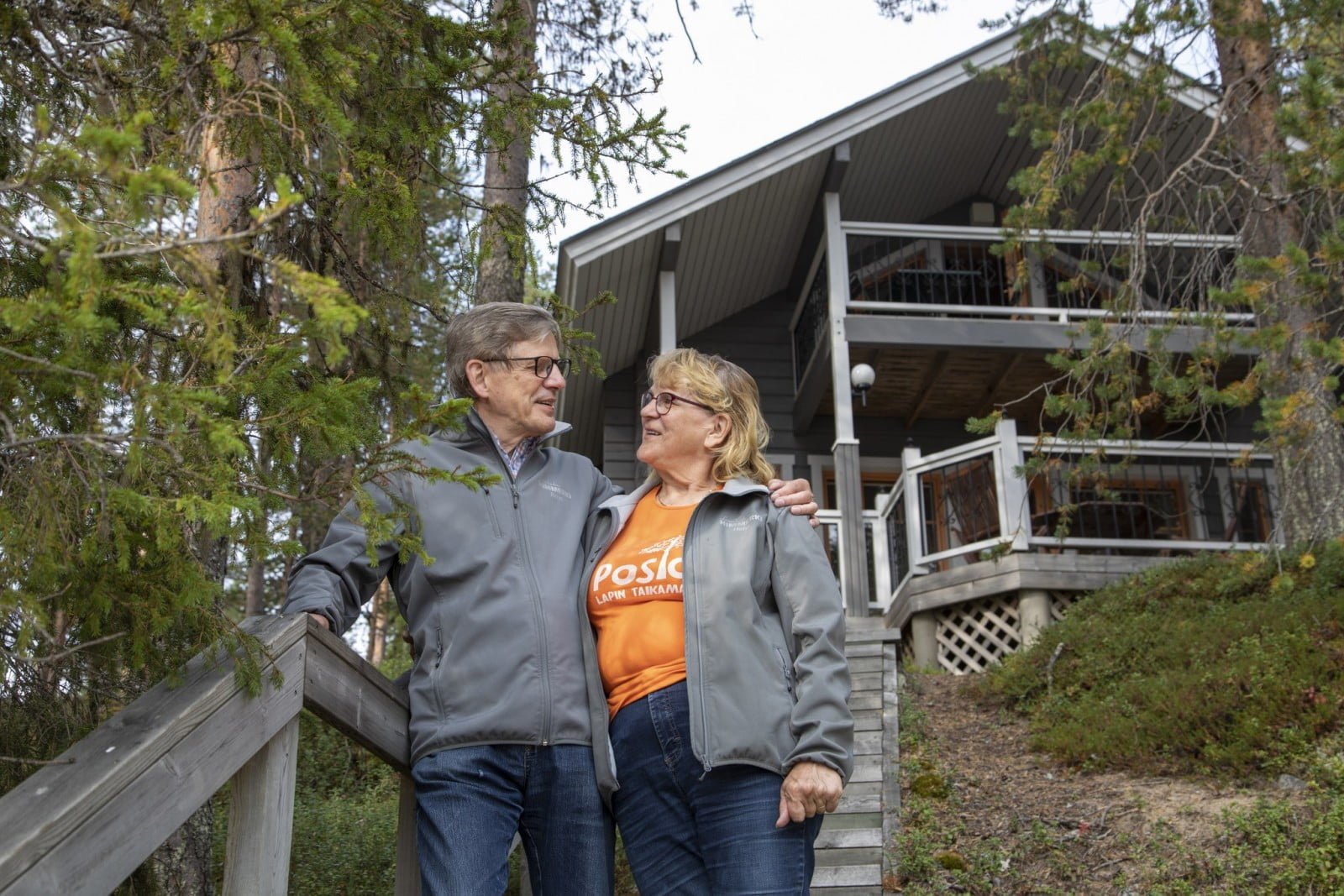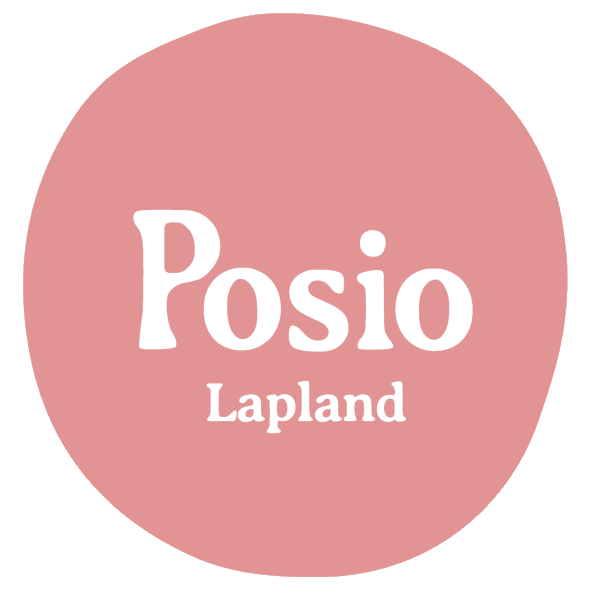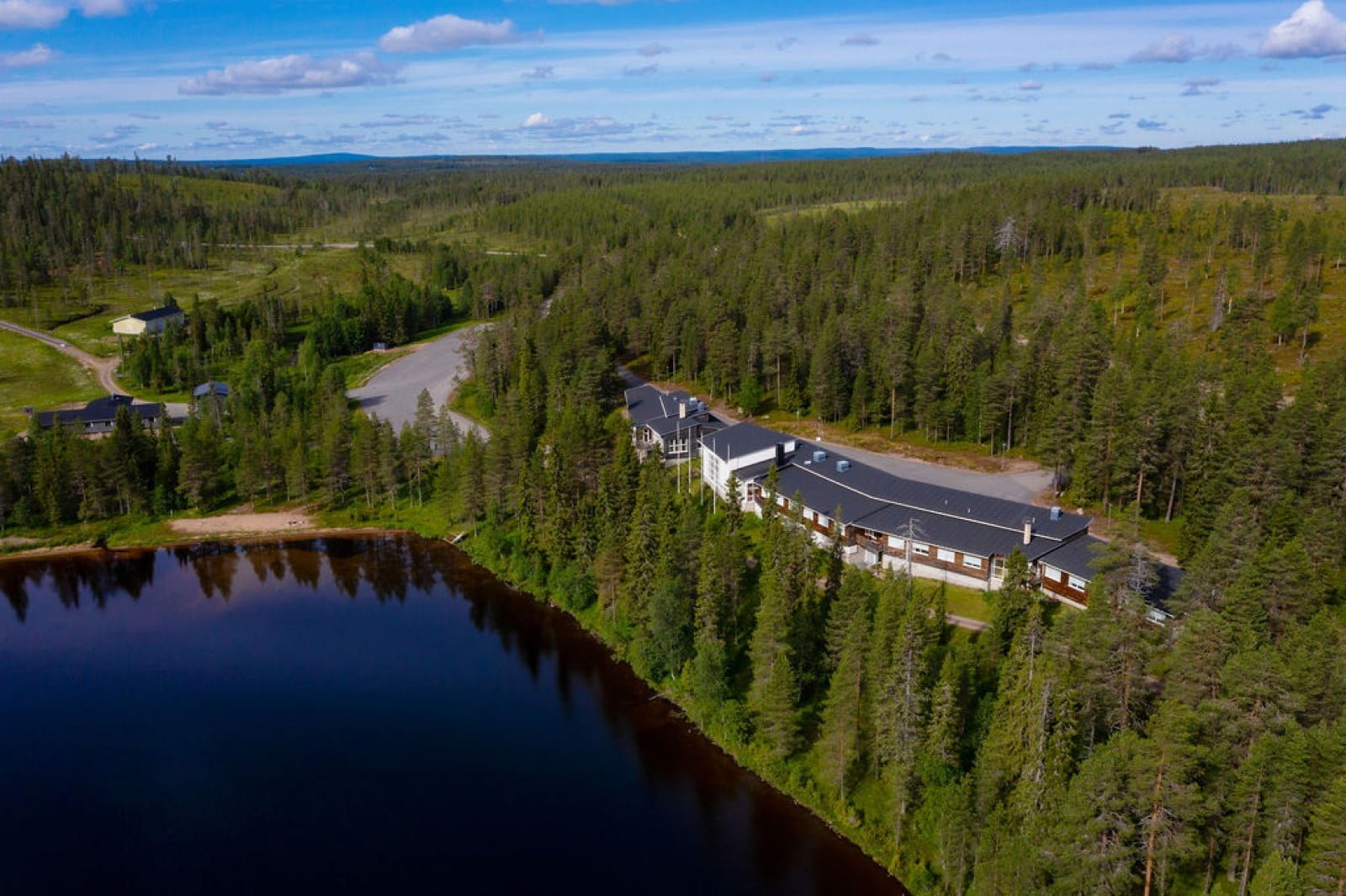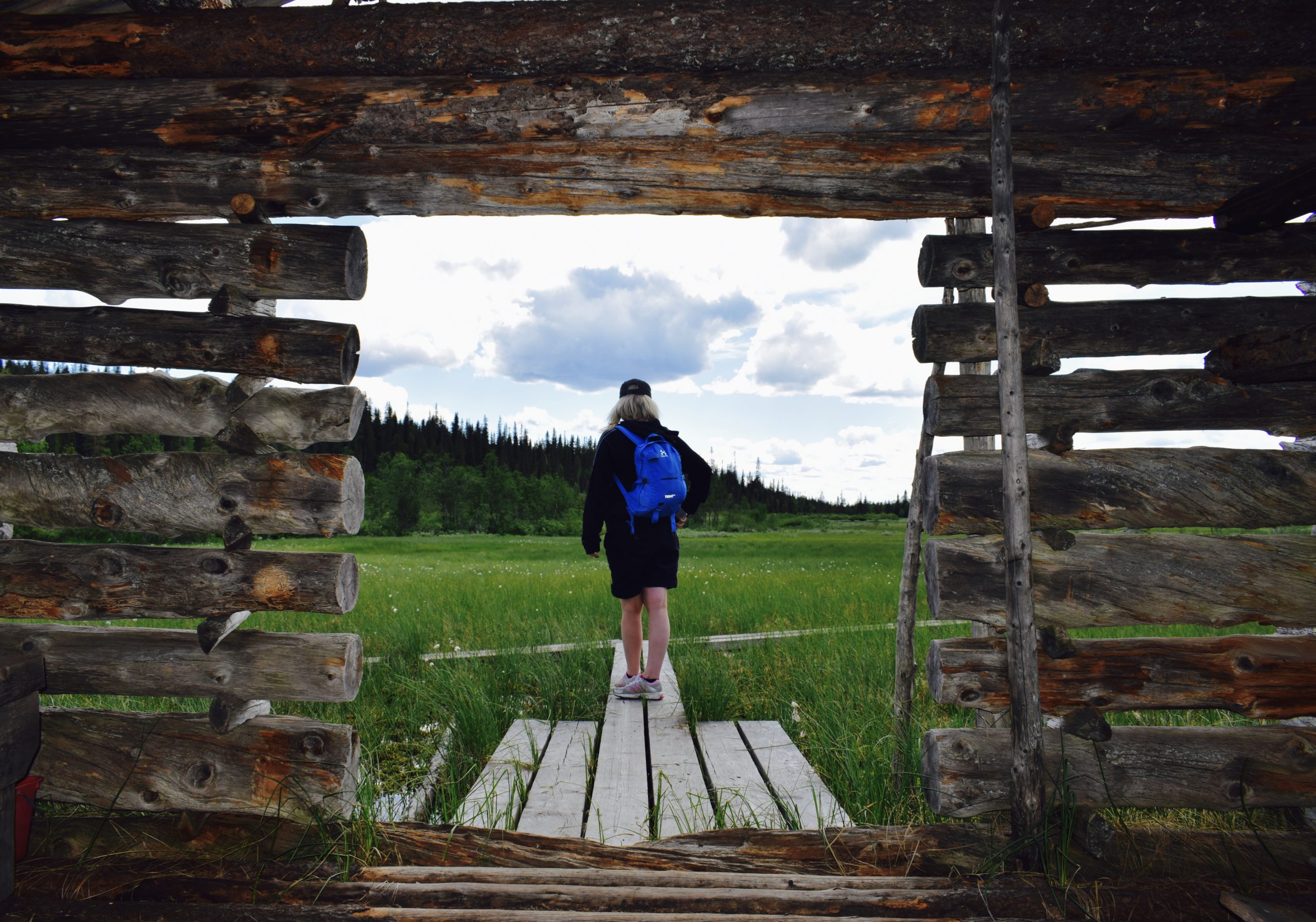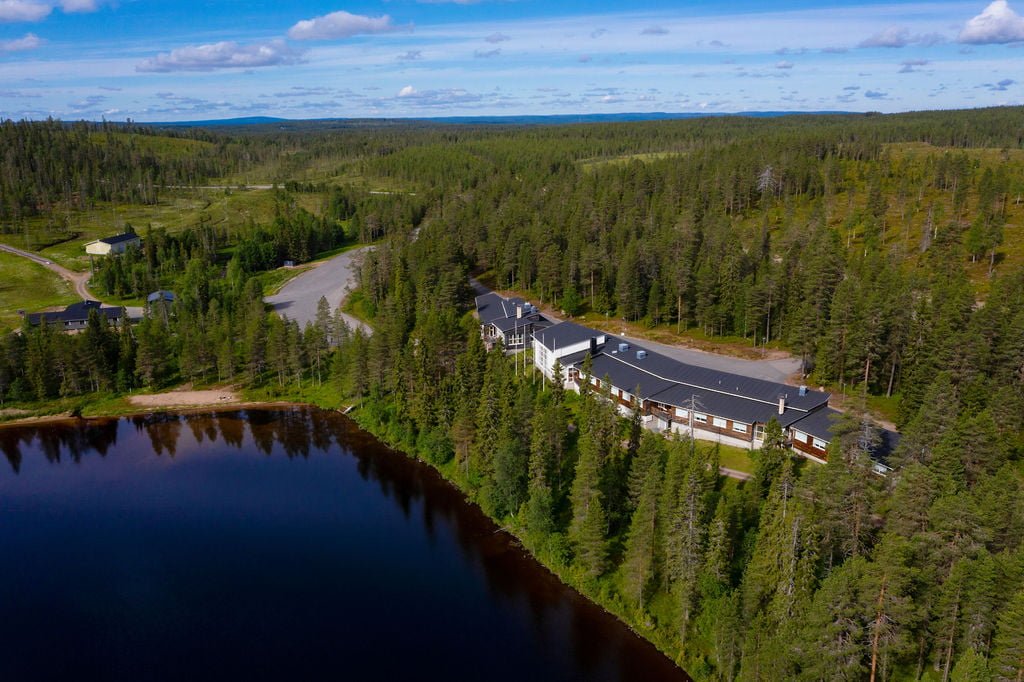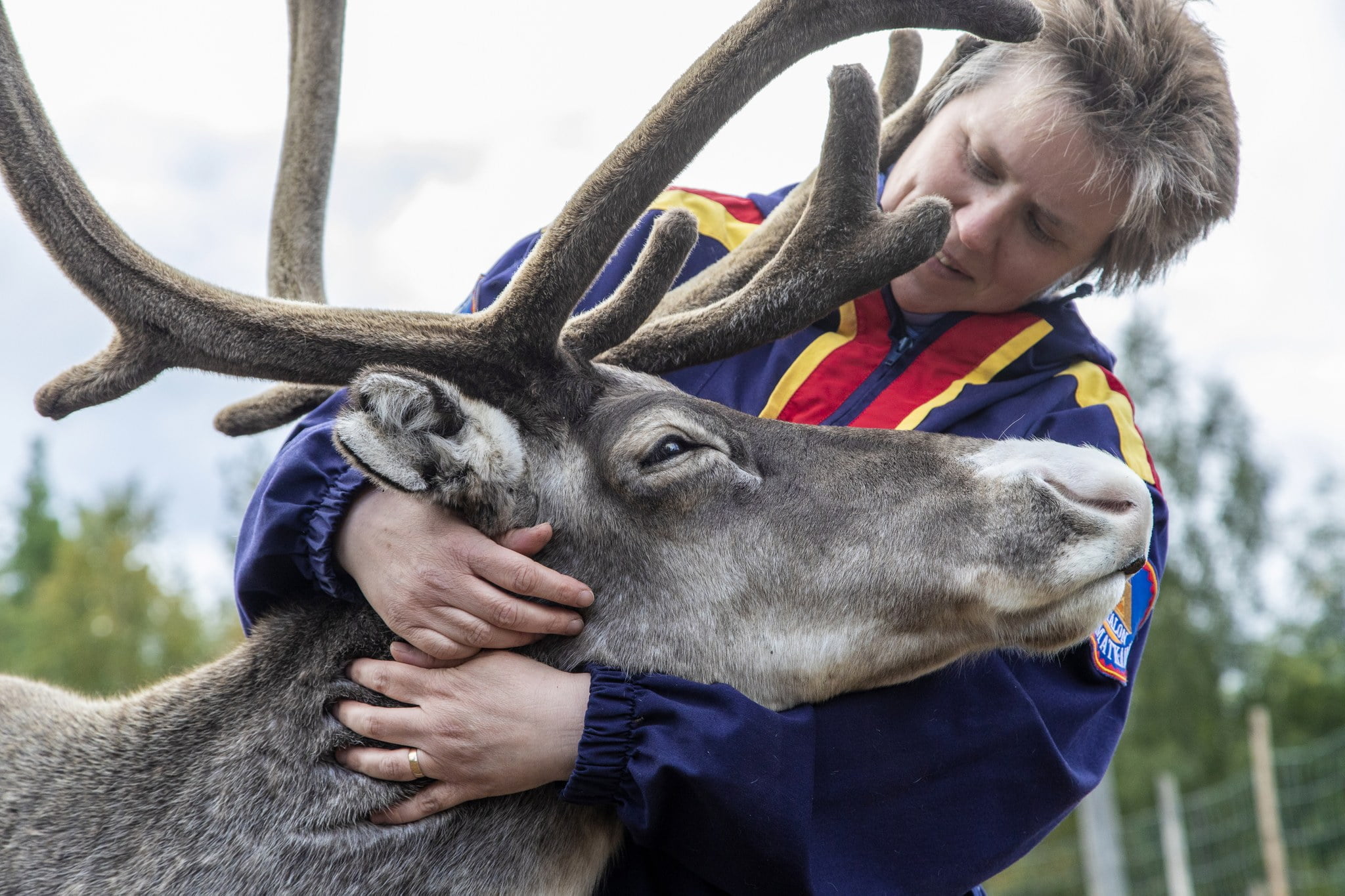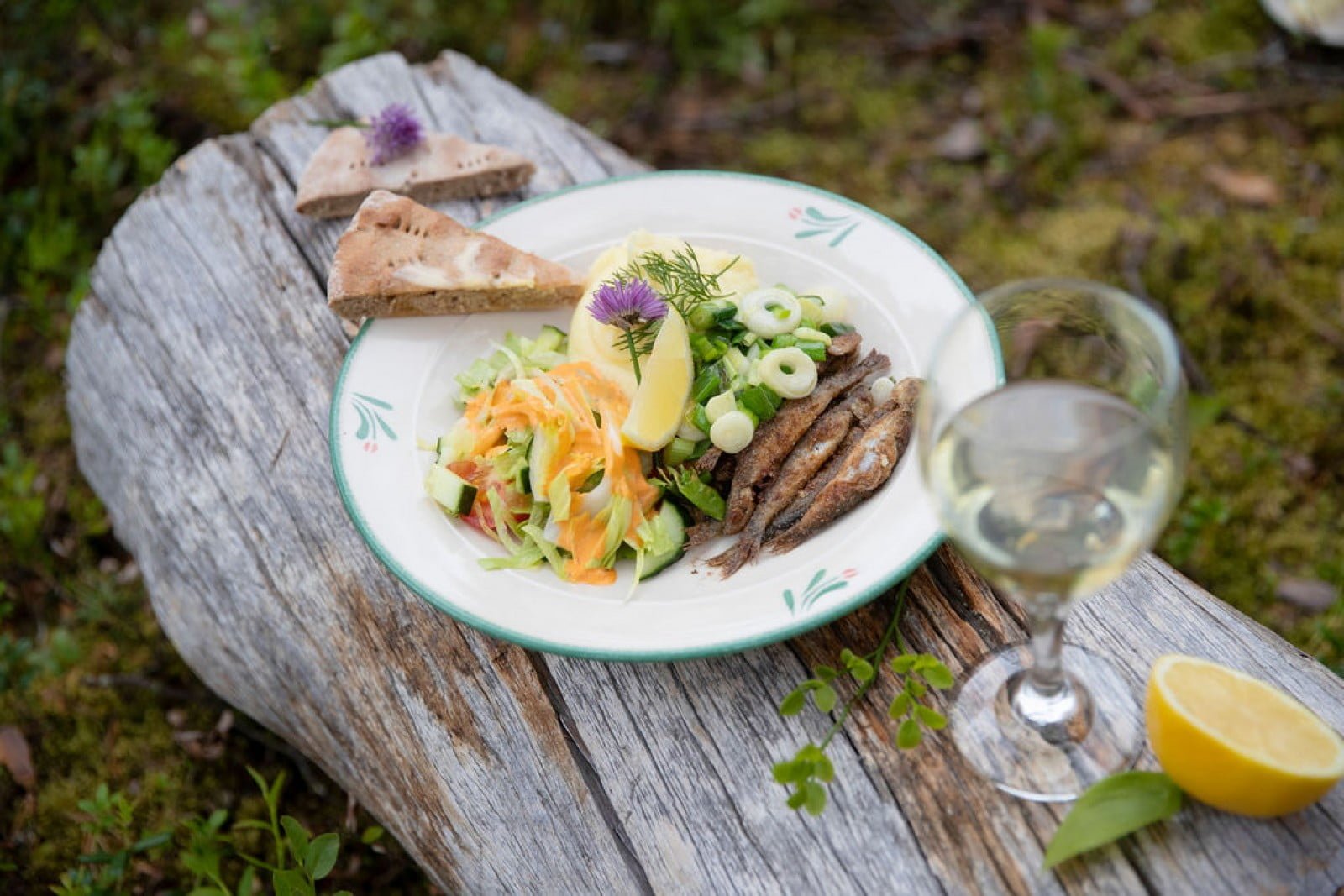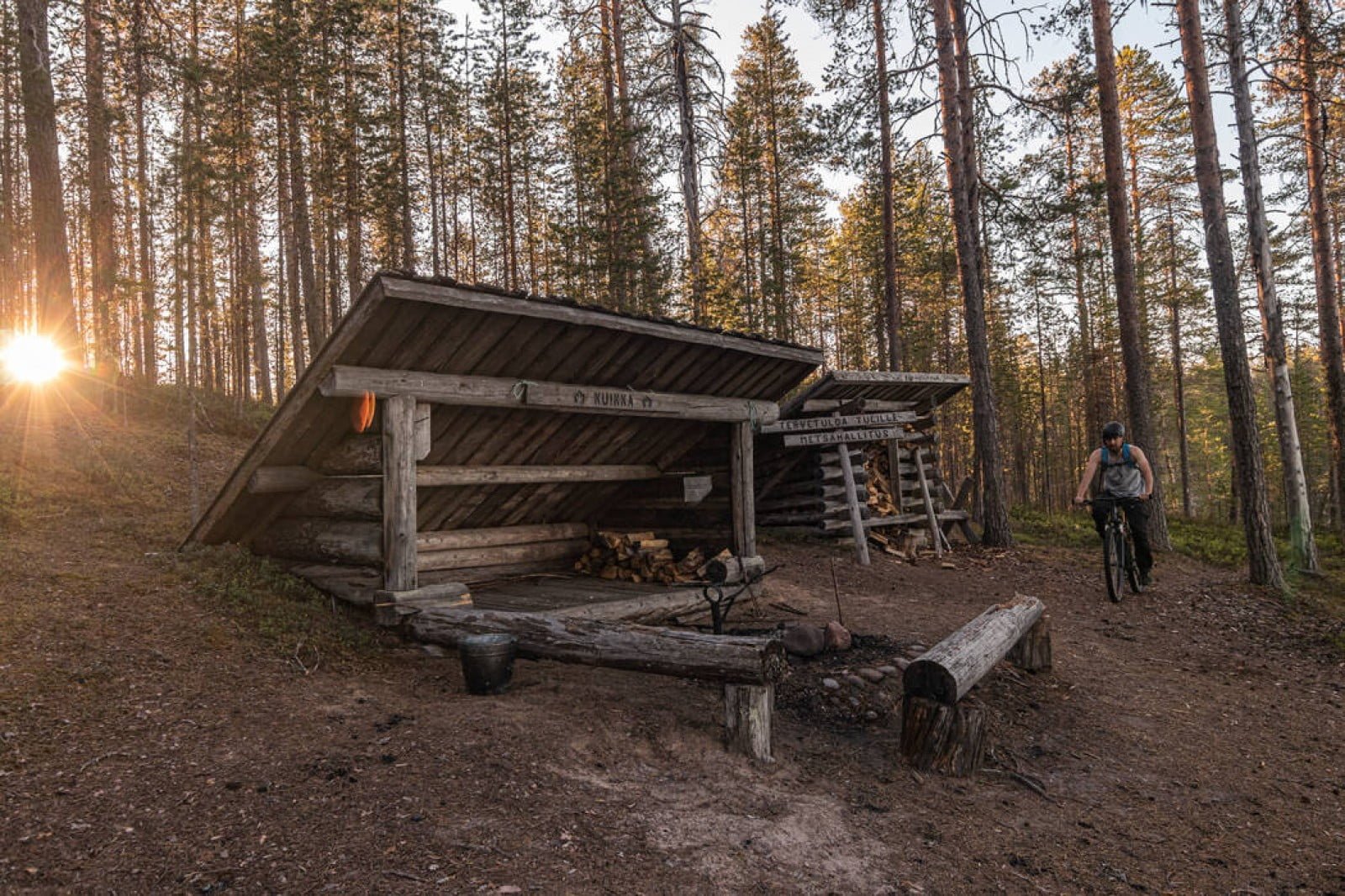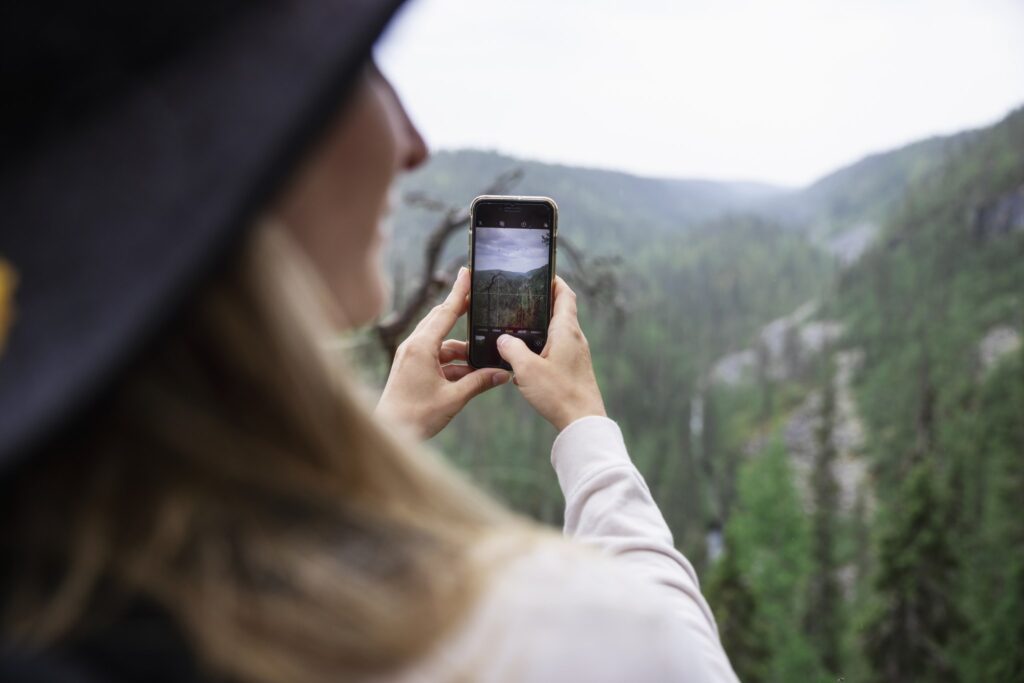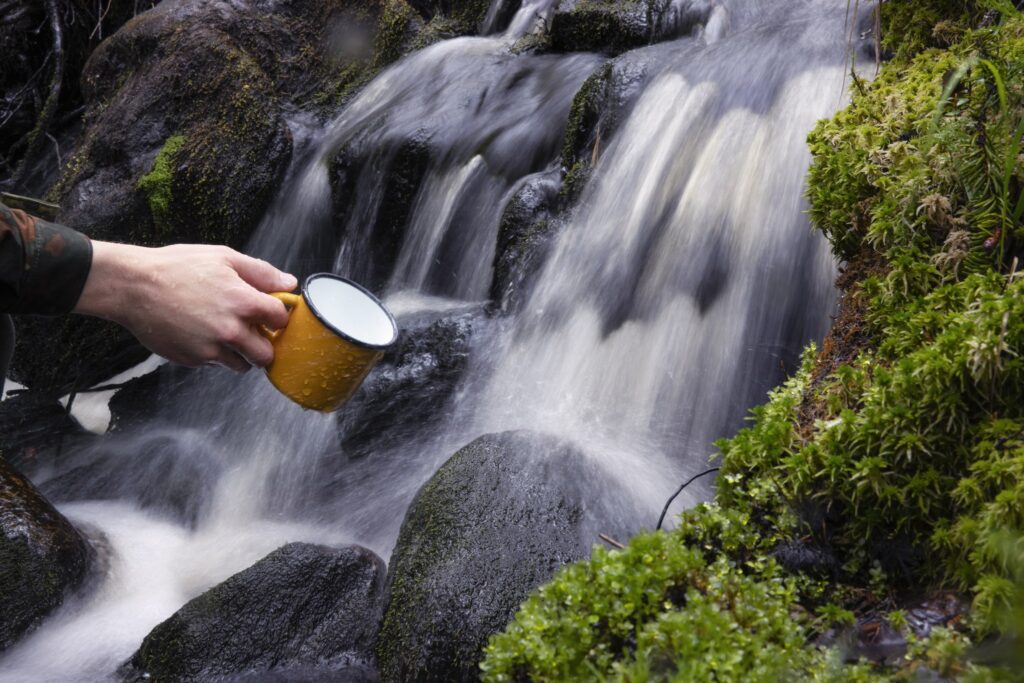Commercial and municipal waste are collected separately in Finland. The Finnish Packaging Recycling RINKI has a take-back point for domestic waste in the Posio administrative centre, Ahola. Carton packaging, glass packaging, metal, plastic packaging, paper, and textiles are collected separately. Tourism businesses cannot use the point, but tourists can. In general, businesses have their own waste management contracts and the municipalities are responsible for collecting domestic waste.
Municipal biodegradeable waste (biowaste) is not yet collected separately. Some households have private composters. One of the challenges in collecting large quantities of biowaste is that it freezes in the containers in winter. Seasonality of tourism affects the quantity of produced waste throughout the year, creating another logistical challenge. Another challenge in the collection is the long distances between the waste producers and the waste processing facilities. Currently biowaste and other combustible municipal waste of Posio is incinerated at the Laanila eco power plant in Oulu. In some cases, the emissions caused by the transportation exceed the benefits from having the waste collected separately.
Some of the Posio tourism companies have their own composts and have organised their recycling with private companies efficiently. For example, Tapio restaurant is one the companies with a compost. Pentik and Himmerki have a system for collecting carton packaging separately.
As the number of companies having a contract with the same waste management company rises, the collection becomes more efficient. The Tourism Association and the municipality are in the process of reorganising the commercial waste collection with a national waste management company.
The Green Key certified tourism businesses aim at adhering to strict waste monitoring, reducing, separation and recycling criteria set by the certifies. The first goal is to get the waste management working as well as elsewhere in Finland.
Waste management companies and municipal waste management organisations are required to monitor solid waste separation and recycling rates. Statistics are gathered by the Statistics Finland and the indicators for the National Waste Plan are created by the Finnish Environment Institute. The measuring helps at reaching the goals set for waste reduction.
There is no public transport within the destination.
The municipality is in the process of creating a network of mountain biking routes connecting attractions and tourism services in its area. Apart from the biking routes, soft mobility is not possible in the destination, as the distances between the attractions and the services are in most cases too long to be covered by non-motorised means of transport.
For example, by driving a car, it takes one hour to get from the other side of Posio, from the Korouoma Nature Reserve, to the other side, where the Riisitunturi National Park is located. On the way, there are the central village of Ahola, and the Pentik Manor in Timisjärvi, but no other attractions.
However, skiing tracks connect the Kirintövaara area with Ahola. Kirintövaara area has the Kirikeskus skiing centre and Wilderness Hotel, Arctic Ceramic Centre, and starting point for some of the Riisitunturi National Park hiking routes.
The Finnish Nature Conservation Act aims to “maintain biological diversity, conserve the beauty and scenic values of nature, [and to] promote the sustainable use of natural resources and the natural environment”. The act outlines the protection and management of the natural environments in Finland. The Finnish Forest Act’s section 10 limits forestry in habitats of special importance.
Most of the protected areas in Finland are managed by a state owned enterprise, Metsähallitus (Administration of forests). From 2017 on, the unit of Metsähallitus managing the protected areas has been the Park & Wildlife Finland. The Riisitunturi and Syöte National Parks and the Korouoma Nature Reserves have management plans created by the Park & Wildlife Finland, in which nature protection and degradation is addressed in.
Tourism businesses operating in the national park sign a cooperation agreement with Metsähallitus. The agreement requires the operators to take into consideration the principles of sustainable nature tourism set by Metsähallitus. The principles encourage voluntary nature protection.
The destination management organisation and Posio municipality work in close cooperation with Metsähallitus in nature protection and tourism management.
Waste water in the zoned areas is managed by the municipality’s water management public utility Posion Vesi ja Lämpö. Outside the zoned areas, the owners of the real estate are responsible for organising their waste water management. The municipality monitors the waste water management.
Municipal waste water treatment plant is located near the administrative centre of Posio. The treated water is released to the Soukkalampi pond flowing to the Kitka lake. The quality of the water is monitored regularly. Forestry and agriculture cause most of the negative impacts on water quality in Posio.
Posio municipality has recently decided to join a regional water conservation project that aims at promoting and supporting local water conservation projects. The local communities that want to start their own conservation project, for example, at a river or lake in their area, are offered expert knowledge and given advice on applying for funds for the project. The projects often require cooperation between the municipality, landowners and businesses.
Moreover, the regional, publicly funded Koillismaan Kalaleader promotes water conservation by funding various sustainable fishing projects.
Reduction of fossil fuels is encouraged in the Green Key certification’s criteria for the tourism companies.
Posio municipality’s public utility Posion Vesi ja Lämpö’s district heating plant uses wood based fuel and oil as a backup. The plant uses also industrial excess heat from the Pentik ceramics factory for the district heating. The plant cogenerates both power and heat.
Posio municipality is in the process of joining the Carbon Neutral Municipalities (Hinku) network. “The municipalities in the network are committed to an 80% reduction in greenhouse gas emissions from 2007 levels by 2030”, as desribed at the network’s site.
In 2019, the share of renewable energy used in Finland was 37%. The figure includes wood based fuels. Wind is 9 and hydro 19 percentage points in the figure. Posio has one wind farm in its area. Electrical energy or wood fuel is often used instead of fossil fuel in heating.
The Regional Council of Lapland has a project (VÄLKKY) to reduce carbon emissions in the region: “The project aims to promote the achievement of the low carbon target in Lapland tourism. In particular, the project focuses on ecological and economic sustainability aspects. The project co-ordinates co-operation, sets common goals for the future, takes measures, monitors and evaluates development by utilising various indicators and communicates results. The measures are implemented at enterprise, tourism and provincial levels.”
Posio is in the process of creating processes for formal involvement of residents in tourism development. Currently sustainability is discussed at the destination’s site’s sustainability page. Current challenges are brought up together with success stories at the page.
The tourism association of Posio has an active social media page that is followed also by the local residents. Developments in sustainability are communicated through the page and information is also shared in other local, popular channels. Press releases have been made, for example, about the businesses applying for the Green Key certification and the Sustainable Travel Finland label.
The municipality organises events for summer house owners in Posio. In 2020 Spring, the event is held online. In the event, the owners are informed about, for example, the latest developments in waste management. The event is interactive, as the summer house owners can raise their concerns and development ideas for discussion with the municipality representatives.
The FEE Finland (site in Finnish) manages the Finnish Green Key tourism business certifications. The FEE Finland organises also the Eco-School Programme in Finland, in which Posio elementary and high school took part in. The programme has also an international site. The FEE Finland is the Finnish branch of the Foundation for Environmental Education.
Inhabitant satisfaction is currently not monitored formally or regularly. Plans for involving locals in tourism development are included in the tourism strategy that is being created in the destination.
Metsähallitus conducts visitor surveys in the Riisitunturi and Syöte National Parks and Korouoma Nature Reserve. The surveys include also local visitors in the attractions
Posio is updating its tourism destination brand. As part of the update, a survey is done about the current brand image and strengths and weaknesses of Posio as a tourism destination. Posio inhabitants were also requested to fill in the survey. In this way, the DMO can gather important information about inhabitant satisfaction and use the results for developing the destination from the inhabitants’ point of view.
Tourism companies in Posio are micro-enterprises with fewer than 10 local employees. The companies form the Posio tourism association and majority of them are members of the Posio business association. The municipality is involved in both of the associations to coordinate business development in Posio.
The business development department of Posio municipality has been expanded in the beginning of 2020 to five people from one person. The tourism association’s executive director is a member of the department, increasing the cooperation between the association and the municipality.
Tourism has had positive impacts in culture in Posio. Intangible cultural heritage, such as fishing and ceramics, benefit from tourism in the destination. The Posio Fair in winter and the Vendace Fair in summer are major events in the destination. Local fishers, artisans, and artists get to sell their products and promote culture in the events. Local cultural heritage is inventoried and made later accessible in the municipality’s Virtual Posio project.
Local products are planned to be showcased and sold at the larger tourism companies. The plan is part of a project promoting local products (Lähiruoka). Products will be sold at the destination’s and the municipality’s online stores once the new versions of them are up and running.
The recently updated Finnish Animal Welfare Act (Eläinsuojelulaki) covers both animals in tourism and livestock. Reindeer Husbandry Act (Poronhoitolaki) is more specialised piece of legislation with the same themes.
Animal protection is monitored and controlled by the regional and municipal vets, police and and health inspectors.
Majority of the animals in tourism in the destination are reindeers and huskies. They work in an environment and climate that is natural to them. There has been a very few issues in animal protection in the area. To the contrary, according to the business owners, the minimum requirements in animal welfare are often exceeded as inadequate. Statistics are not available in the topic.
The Reindeer Herder’s Association (Paliskuntain yhdistys), working under the Ministry of Agriculture and Forestry, is a central source of information for animal protection and other relevant issues for reindeer herders.
University of Lapland had a research project about animal welfare and responsible tourism. Some of the research articles are available in English at the project’s site.
Kota-Husky tourism company in Posio has recently received the Green Key’s Finnish Green Activities environmental label. The business offers various husky tours. Another Green Key certified company, Ylitalon Poromatkailu reindeer farm, has various reindeer tourism products.
There has been no recent court cases of mistreatment of animals in tourism in Posio.
For example, at Kota-Husky, the dogs are not killed after they get old, but instead they get to die of old age at the farm. The lives of the animals have intrinsic value instead of only economic value in tourism.
